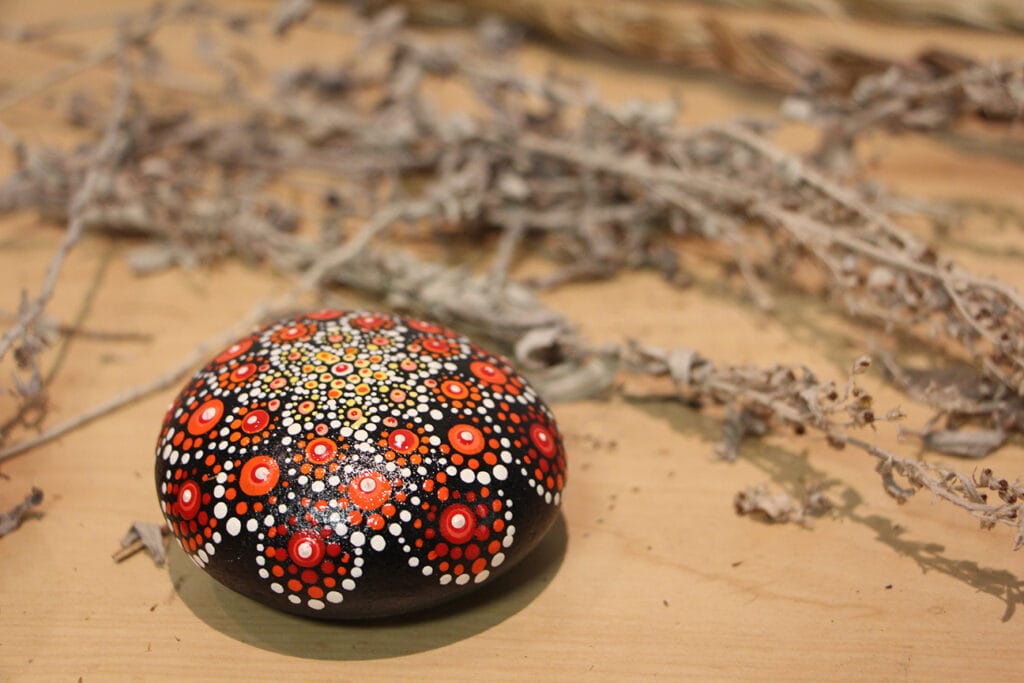On this page, you will find:
- Links to SCO Health Programs
- Q+A on Health Transformation
- Q+A on “Information in a Good Way”
- Q+A on our community engagement
- We Walk for Health Transformation Project videos
- Wellness Keeping: Healing Through Culture videos
- Southern First Nation Health Care System Priorities
SCO Health Programs
- Harm Reduction Program
- Jordan’s Principle Program
- Mobile Crisis Response Team
- Non-Insured Health Benefits Navigation
- Pathways to Healing Program
- Traditional Healers Program
Q+A about Health Transformation
This section includes the following questions and answers:
- What is a healthcare system?
- How is a First Nation healthcare system going to be different from the current healthcare system in Manitoba?
- What are five key health priorities of the 34 southern First Nations?
- Who is my Community Health Transformation Liaison?
- How can I get involved?
What is Health Transformation?
Health Transformation at SCO is a community-based and community-driven process. It is focused on building an improved healthcare system guided by the beliefs of the southern Anishinaabe and Dakota First Nations, balanced with western medicines.
How did Health Transformation at SCO come to be?
SCO Health Transformation began in 2019, shortly after a SCO Chiefs-in-Summit resolution, Exercising our Treaty, and Inherent Right to Health. Our vision is to close the 11-year gap in life expectancy between southern First Nation citizens and all other Manitobans.
What is a healthcare system?
A healthcare system is the organization of people, institutions, and resources that deliver health care services to meet the health needs of a given population or community.
How is a First Nation healthcare system going to be different from the current healthcare system in Manitoba?
The proposed approach to building a First Nation healthcare system puts First Nations in control of healthcare. The southern First Nation healthcare model is community-based, community-led, following the ancestral and traditional ways of life with a balance of western medicine to ensure holistic health is achieved and maintained.
This means a healthcare system that is Indigenous led, trauma informed, and culturally safe that offers communities:
- the choice of traditional medicines and knowledge
- a culturally safe, prejudiced free space to access health services, and
- local access and language immersion
What are five key health priorities of the 34 southern First Nations?
- 1. Community-based primary care services
- 2. A cultural and Traditional Knowledge foundation to health care
- 3. Increased mental health & addictions programs and services
- 4. Increased Elder programs and services
- 5. More health human resources
Who is my Community Health Transformation Liaison?
The Community Health Transformation Liaisons (CHTLs) are local community connectors and knowledge gatherers at the grassroots level that drive engagement in community. Check out our Community Health Transformation Liaisons on our staff page for a full list.
How can I get involved?
O-Nii-Gah-Neek Mino Ayawin: We are leaders in our own health.
Health Transformation at SCO is an opportunity for you to take control of your community health and health outcomes. Through a variety of methods, we aim to create space for the voices of all southern First Nation community members to be heard.
Reach out to learn about our upcoming events!
Phone: 204.946.1869
Toll free: 1.866.876.9701
Hours: Monday to Friday from 8:30 am – 4:30 pm
Email: health@scoinc.mb.ca
Q+A about “Information in a Good Way”
This section includes the following questions and answers:
- What is “Information in a Good Way?”
- What does “Information in a Good Way” mean for the southern First Nations?
- How does “Information in a Good Way” link to Health Transformation?
What is “Information in a Good Way?”
“Information in a Good Way” is an approach to data sovereignty and governance supported by resolution at the September 2021 Chiefs-in-Summit. It looks at the way the southern 34 manage their individual community’s data. It is our commitment to data sovereignty. This means putting the control over information use, sharing and storage into the hands of the people that created it – YOU!
What does “Information in a Good Way” mean for the southern First Nations?
At the direction of this resolution, SCO aims to help First Nations build information systems, support First Nation data ownership, and help train the next generation of Indigenous data and information experts. The goal is for southern First Nations’ youth to lead the new age of decolonized data sovereignty.
How does “Information in a Good Way” link to Health Transformation?
The resolution is guided by SCO’s Health Transformation Data & Evaluation subcommittee. This is composed of First Nations Health Directors, various data experts, Elders and Knowledge Keepers (Grandmothers and Grandfathers), leadership, and community members. Health Transformation is working towards building a decolonized healthcare system that is rooted in taking back control over the systems that directly impact First Nation lives. This includes First Nation health data and information systems.
Q+A about our community engagement
This section includes the following questions and answers:
- What is your community engagement process?
- What are the guiding principles for your community engagement?
- Who are my Community Health Transformation Liaisons?
What is your community engagement process?
We have had two rounds of community engagement. The first round was done in 2020. It used the following tools:
- Meetings
- Information sessions
- Interviews
- Surveys
- Asset mapping for baseline
What are the guiding principles for your community engagement?
Throughout our community engagement process, individual community members, health teams, and leadership have communicated several guiding principles that are informed by Dakota and Anishinaabe ways of knowing. These include:
- Health self-determination: Deliver person-centered care and strive for continuous quality improvement of care. Empower patients and their families to be the owners of the health-care system and their health-care choices.
- Language and culture: Promote the development and support the use of cultural ways of healing, traditional medicines, land-based healing, traditional healers, and holistic care. Promote and support the use of our Anishinaabe and Dakota languages in health care.
- Health care equity: Seek equal outcomes, rights, and respect for all people as they experience the health care system.
- Good governance: Ensure accountability, fiscal responsibility, transparency, open lines of communication, full control of all hires, control over programs and services and community involvement (including youth and elders) in decision making at all levels of the health care governance structure.
- Optimal health care standards: Promote the development and support of improved service delivery that is culturally safe, sensitive and confidential, delivered with minimal delay that fosters mutual respect for both the individual, the provider and the circle of care.
- Strong infrastructure: New improved service delivery that meets the needs of the community, including buildings, equipment, roads, transportation, etc.
Who are my Community Health Transformation Liaisons?
The Community Health Transformation Liaisons directly support the community engagement work being done by:
- Setting up sessions and events in their First Nation and region.
- Coordinating activities for the community, its members, and its leadership.
- Working with their Health Director on the collection of wisdom, advice, feedback, and guidance from the community.
- Providing assistance and support for events that may be held outside the community as needed.
- With our support, helping respond to community requests for resources and information on our initiative and how to get involved.
How can I get involved?
To learn more about how you can get involved, contact your Community Health Transformation Liaison (CHTL). If your First Nation doesn’t have a CHTL, please contact our Health Team directly at:
Phone: 204.946.1869
Toll free: 1.866.876.9701
Hours: Monday to Friday from 8:30 am – 4:30 pm
Email: health@scoinc.mb.ca
We Walk for Health Transformation videos
Wellness Keeping: Healing Through Culture videos
Southern First Nation Health Care System Priorities
Below is a listing of the five main community priorities that have been identified during the 2020-21 community engagement process.
COMMUNITY-BASED PRIMARY CARE SERVICES IN EACH COMMUNITY
Community engagement participants noted a broad range of primary care services that are required in their home communities. Some of these included better quality of care, increased management of disease and illness in community, cultural and traditional program/methods, mental health services and rehabilitation support, better medical transportation, more homecare, more exercise and nutrition, more care the elderly and more services for adults and youth.
A CULTURAL AND TRADITIONAL KNOWLEDGE FOUNDATION TO HEALTH CARE
Over 50% of the participants in the phase 1 community survey spoke of a desire for more cultural and traditional programs that would provide traditional healing options to meet their healthcare needs. Participants noted that healing protocols and ceremonies, knowledge of medicines and harvesting, more lands-based teaching and knowledge transfer, language immersion, having safe, sacred spaces available to them in their home communities and the importance of language translation are critical. They believe a new health care system must be delivered according to Indigenous ways first.
INCREASE MENTAL HEALTH & ADDICTIONS SERVICES
Many community members identified mental health and the programs and services attached to mental health as a priority for them and their communities. In the Phase 2 Community Survey, when participants were asked about the types of addictions and mental health programs they would like to see in the community, 45% of the
survey participants noted Alcohol and Drug Addiction programs. Mental Health and Wellness programs was next at 31%.
INCREASE ELDER PROGRAMS AND SERVICES
In all the community engagement efforts, participants have noted the importance and value of Elders and the need to take care of them within the community. Elders are the backbone of the Nations and their knowledge of the Ancestral and Traditional ways as well as their more frequent fluency in Anishinaabemowin or Dakota is seen as playing a very important role in the health and wellbeing of the community. Although it was noted that there were programs offered in the communities for Elders, it was thought that these could be expanded with more workers and that more support could be integrated into the programs and services.
MORE HEALTH HUMAN RESOURCES
Phase 1 Community Survey results show that the participants want mote Health Human Resources in the community. Many communities noted the need for more doctors, nurses, dentist, specialists, therapists, optometrists, and other healthcare providers in the community. The phase 1 Community Survey participants also noted the need to have more First Nation Community Members – preferably from the Nation they serve – involved in healthcare at all levels, not just the lower levels of care.


